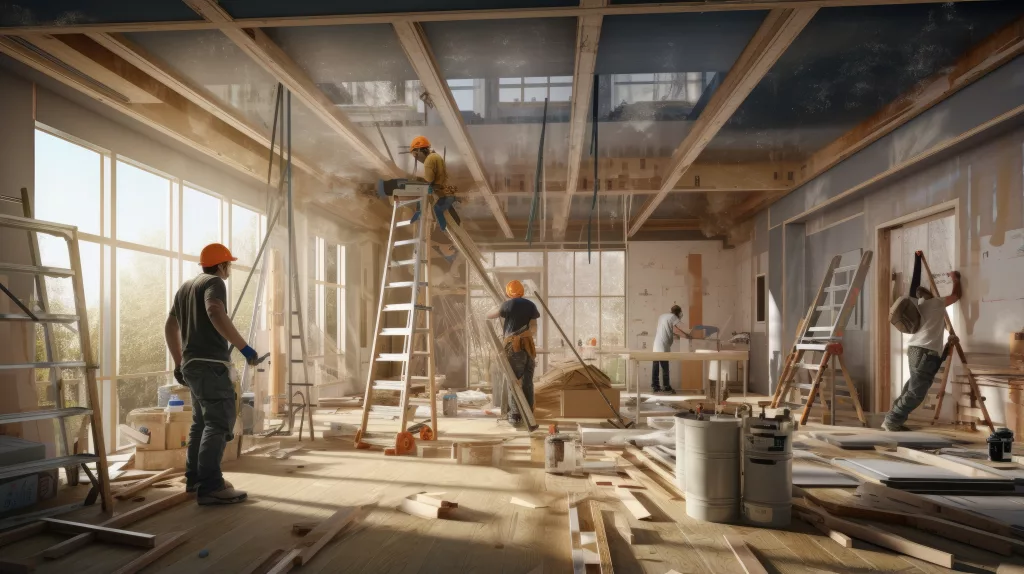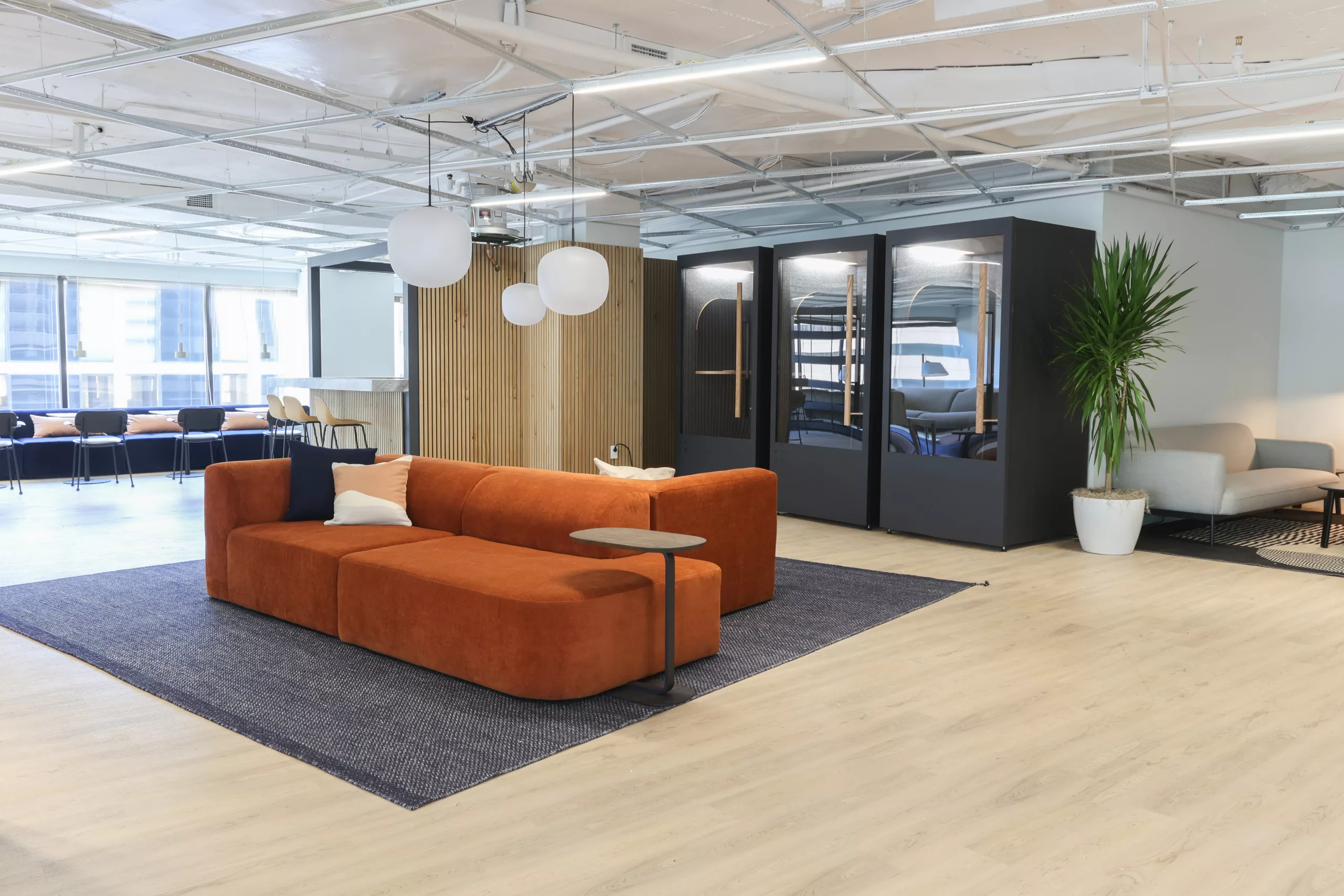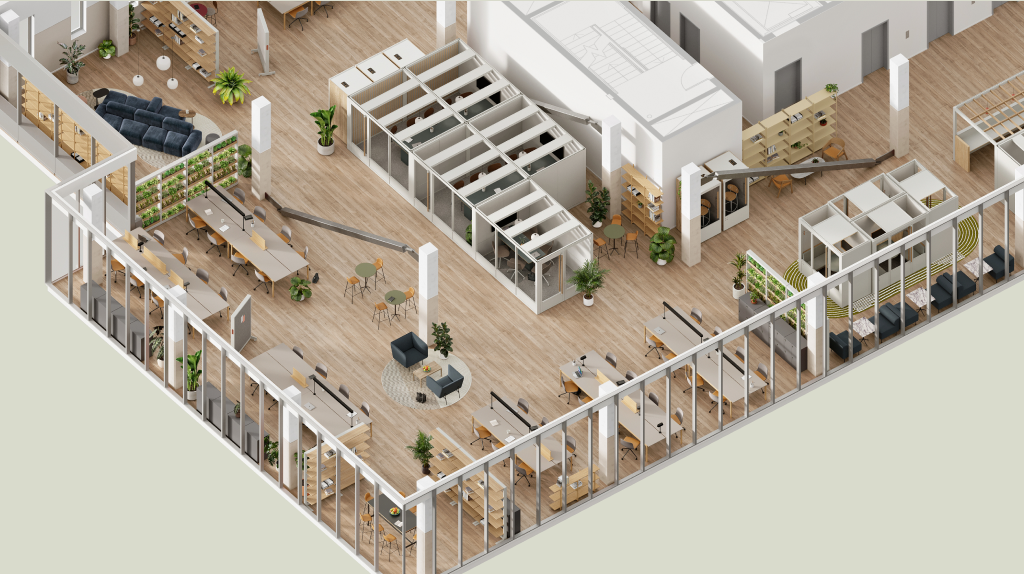Office construction accounts for a third of all landfill waste. Prefab office suites that rely on modular architecture could reduce that waste.
As landlords look to woo employers back to the office, they’re increasingly rolling out pre-built spec offices that are move-in-ready for tenants. That’s good for the planet.
As we celebrate Earth Month, these pre-built offices potentially promise to bring positive change for the office market. Designed to be immediately occupied by an unspecified tenant, these spaces don’t need to be overhauled for each new tenant. They’re essentially construction-free, which is important because the construction sector is a big culprit for climate change.
Increased Demand for Sustainable Offices
The building and construction sector accounts for 37% of global emissions. Add to that: almost half of all non-renewable resources we consume are used in construction, and some estimates suggest construction demolition of existing structures represents about 90 percent of construction landfill waste, according to a report by the Modular Building Institute.
It’s crucial that we change the way we think about, and design and build offices.
Last year, scientists issued a “final warning” on climate change that we need to act now before it’s too late. The Intergovernmental Panel on Climate Change, made up of the world’s leading climate scientists, issued a comprehensive message to businesses, governments, financial institutions to make true change that could limit global temperatures rises to 1.5 degrees celsius above pre-industrial levels, where the damage to the globe will rapidly become irreversible. We’re already seeing extreme weather, heat waves, melting glaciers and rising sea levels.

Environmental Change Needs Business Change
Businesses, financial institutions, cities and regions each play a critical role in minimizing carbon emissions, and 93% of CEOs said in 2022 that sustainability issues are important for the future success of their business, according to McKinsey.
Spec suites may offer some reprieve for the planet. Why? A growing trend within that space is modular office designs which can be easily adapted and adjusted for each tenant– without construction.
Increased Demand for Modular Office Plans
For instance, ROOM designed a series of adaptable office floor plans for a space in Washington D.C. as part of a partnership with sustainable furniture firm Canoa and developer TF Cornerstone, which has a portfolio of 2.5 million square feet of office space. The plans, which were designed based on the idea that modular architecture can offer future tenants more layout options without hassle, cost and waste of construction. The movable, modular furniture lets you easily change the size and function of different spaces.
“Modularity allows you to test and experiment and adapt your physical surroundings to the way people interact with them,” says ROOM co-founder Morten Meisner-Jensen.

Meisner-Jensen says more landlords are demanding these types of modular spec suites. Large commercial landlords are embracing the concept, including BentallGreenOak (BGO) with office holdings in 28 cities across 14 countries, and global developer Tishman Speyer and SL Green Realty, Manhattan’s largest office landlord, have embraced flexible office suites. Last fall, BGO unveiled its move-in-ready offices spanning 1,000- to 18,000-square feet with flexible leases as part of a spec suite program called MIRO (move-in ready office.)
Spec Suites Leasing Climbs
In some markets, such as Minneapolis-St. Paul, spec suites leased 46% faster than their non-spec counterparts last year. Such spaces allow landlords to differentiate themselves, lease space faster and charge a premium.
Employers, meanwhile, benefit because they typically get flexible leases and can avoid a capital outlay for furniture or renovations and add the environmental benefits. Thanks to the ghost offices left by the pandemic, there’s an influx of used office furniture available, too. Buying used offers not only financial savings for businesses, but it can also help the environment. As much as 17 billion pounds of furniture waste are sent to U.S. landfills each year.
Spec Suites Have Changed
Environmental sustainability is not a “nice to have” anymore; it’s a must have. In the past, spec offices weren’t necessarily great spaces because landlords would simply apply new paint and carpeting and do a few minor upgrades and then release the space. Today, those pre-built spaces are far more luxurious, offering amenities like collaboration rooms, pantries, phone booths and more.
They’re ideal for new startups that need to get going, corporate tenants that need to relocate during expansions or renovations, companies that are opening new satellite offices that are closer to remote workers. And ultimately, it may be a kinder office for today’s ailing planet.
